
0
+
Google Reviews

0
+
4.2 (2410 Ratings)
The MEAN Stack is a popular full-stack web development framework that combines four key technologies: MongoDB, Express.js, Angular, and Node.js. Each component of the stack serves a specific purpose in building modern web applications. MEAN Stack is a popular and versatile full-stack web development framework that leverages JavaScript technologies throughout the development process. It is known for its flexibility, scalability, and support for building modern web applications and services.


Curriculum Designed by Experts
Introduction
Downloading
Package Content
First Run
Command Line Options
Verify Server
Getting Help in the Shell
Saving Data
Introduction
Overview
Storage
BSON
Saving Documents
Collections
Document Id
ObjectId
Insert
Insert with Id
Complex Document
Save Danger
Update Command
Update Demo
Set Operator
Unset Operator
Rename Operator
Push Operator
Pull Operator
Pop Operator
Array Type
Multi Update
Find And Modify
Query With Sort
Finding Documents
Introduction
Overview
find()
Equality
Projection
Comparison
$not
$in
Arrays
$all
$nin
Dot Notation
Sub-Document
null and $exists
And
Cursor
sort()
limit()
skip()
findOne()
Deleting Document
remove
deleteOne
deleteMany
Indexing
Introduction
Overview
Scan Is Bad
Index Theory
Sort Uses Index
Index Types
Create Index
system.indexes collection
explain()
dropIndex()
Index Name
ES6 JavaScript
Introduction to JavaScript
Introduction to ES6
New in ES6
Classes
let and const
Arrow functions
Enhanced Object Literals
Destructuring
Spread Operator
Rest operator
Getting Started
What is React?
Real-World SPAs & React Web Apps
Why Should We Choose React?
React Environment Setup
Understanding the Base Features & Syntax
Understanding the Folder Structure
Understanding Component Basics
Understanding JSX
Creating a Functional Component
Creating a Class Component
Working with Components & Re-Using Them
Understanding & Using State
Props & State
Using the useState() Hook for State Manipulation
Stateless vs Stateful Components
Diving Deeper into Components & React Internals
Splitting an App Into Components
React Hooks
Using useEffect() in Functional Components
Controlling the useEffect() Behavior
Cleaning Up with Lifecycle Hooks & useEffect()
How React Updates the DOM
Higher Order Components (HOC) – Introduction
Another Form of HOCs
Using Refs
Understanding Prop Chain Problems
Using the Context API
contextType & useContext()
Adding Routing to Our Burger Project
Setting Up Routing & Routes
Passing Ingredients via Query Params
Implementing Navigation Links
Forms and Form Validation
Custom Hooks for Error Validation
Redux State Management
Introduction
Node.js Background
Getting Node.js
Demo: Installing Node on Linux/Windows with NVM
Node’s Event Loop
Node Conventions for Writing Asynchronous Code
Modules, require() and NPM
Introduction, Accessing Built-in Modules
Finding 3rd Party Modules via NPM
Express
Introduction
Setting up Express
Running Express
Debugging Options
Static Files – Public Directory
Introduction, Making Web Requests in Node
Building a Web Server in Node
Demo: Building a Web Server in Node
Routing
Introduction
Navigation
Routing
Rendering
Separate Files
Router Functions
Authentication
Introduction to Authentication
Auth Routes
Passport
Local Strategy
Events and Streams
Introduction
Events and the EventEmitter Class
Readable and Writable Streams, the Pipe Function
Demo: Readable and Writable Streams
Demo: Piping Between Streams
Accessing the Local System
The Process Object
Demo: The Process Object
Interacting with the File System
Demo: Interacting with the File System
What is a Buffer?
The OS Module
Socket.IO
Realtime Interaction with Socket.IO
Demo: Socket.IO
Testing and Debugging
Introduction, The Assert Module
Demo: The Assert Module
Testing with Mocha and Should.js
Demo: Mocha and Should.js
Scaling Your Node Application
Introduction, The Child Process Module
Demo: The “exec” Function
Demo: The “spawn” Function
Demo: The “fork” Function
Scaling with Node’s Cluster Module
Demo: Building a Clustered Web Server
Our MEARN STACK Course Training equips learners having in-demand expertise with Express, React, Node.js, and MongoDB. These technologies power modern web applications. MEARN certification enhances job prospects, providing expertise needed for high-growth roles in web development and full-stack engineering.
Our MEARN STACK Course Training opens doors to vast career opportunities in full-stack development. Proficiency in Node.js, Express, React, and MongoDB learners can pursue roles like web developer, software engineer, and more. MEARN certification boosts employability in today's tech-driven job market.
Our MEARN STACK Course Training integrates cloud adoption, preparing learners to deploy scalable applications. With MongoDB, Express, React, and Node.js, students gain skills in building cloud-ready apps. MEARN certification ensures proficiency in cloud-based solutions, boosting career prospects in the tech industry.
Unlock the full potential of Scalability and Flexibility with our MEARN STACK Course Training. Master MongoDB, Express, React, and Node.js to build robust, scalable web applications. Enroll today for expert-led training and certification, and elevate your career in full-stack development to new heights!
Enhance your Cost Management skills with our comprehensive MEARN STACK Course Training. Master MongoDB, Express, React, and Node.js to build scalable, efficient apps, while minimizing development costs. Enroll today for expert-led training and certification to advance your career in full-stack development!
Master Security and Compliance with our MEARN STACK Course Training. Learn to build secure, compliant web applications using MongoDB, Express, React, and Node.js. Enroll today for hands-on training and certification to advance your career in full-stack development while ensuring data protection! your full-stack development skills meet industry standards. Grow your career now!
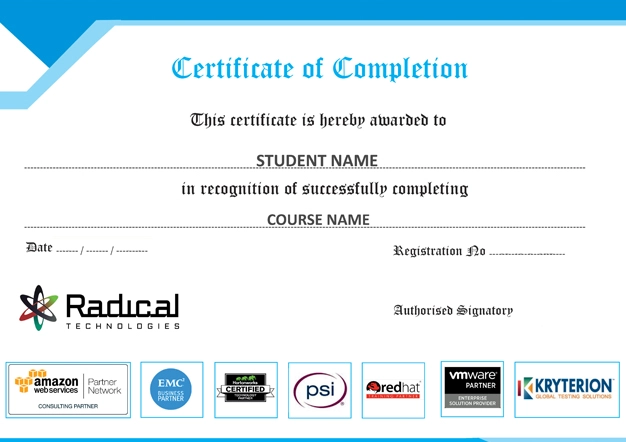


At Radical Technologies, we are committed to your success beyond the classroom. Our 100% Job Assistance program ensures that you are not only equipped with industry-relevant skills but also guided through the job placement process. With personalized resume building, interview preparation, and access to our extensive network of hiring partners, we help you take the next step confidently into your IT career. Join us and let your journey to a successful future begin with the right support.
At Radical Technologies, we ensure you’re ready to shine in any interview. Our comprehensive Interview Preparation program includes mock interviews, expert feedback, and tailored coaching sessions to build your confidence. Learn how to effectively communicate your skills, handle technical questions, and make a lasting impression on potential employers. With our guidance, you’ll walk into your interviews prepared and poised for success.
At Radical Technologies, we believe that a strong professional profile is key to standing out in the competitive IT industry. Our Profile Building services are designed to highlight your unique skills and experiences, crafting a resume and LinkedIn profile that resonate with employers. From tailored advice on showcasing your strengths to tips on optimizing your online presence, we provide the tools you need to make a lasting impression. Let us help you build a profile that opens doors to your dream career.

Infrastructure Provisioning
Implementing automated infrastructure provisioning and configuration management using Ansible. This may include setting up servers, networking devices, and other infrastructure components using playbooks and roles.

Applications Deployment
Automating the deployment and orchestration of applications across development, testing, and production environments. This could involve deploying web servers, databases. middleware, and other application components using Ansible

Continuous Integration
Integrating Ansible into CI/CD pipelines to automate software. build, test, and deployment processes. This may include automating the creation of build artifacts, running tests, and deploying applications to various environments.

I enrolled in the MEARN Stack Training in Bangalore and was impressed by the quality of instruction. The course covered all essential concepts thoroughly, preparing me for real-world challenges.
The MEARN Stack Course at Radical Technologies transformed my understanding of full-stack development. The trainers provided hands-on experience that was invaluable for my career!
Joining the MEARN Stack Institute in Bangalore was one of the best decisions I made. The curriculum is up-to-date and aligned with industry standards, making it perfect for aspiring developers.
The MEARN Stack Classes were engaging and informative. The practical projects helped me gain confidence in my skills, and I feel ready to enter the job market.
The MEARN Stack Online Classes offered by Radical Technologies made it easy for me to learn from home. The instructors were always available to clarify doubts and provide guidance.
I completed the MEARN Stack Online Training, and it exceeded my expectations. The flexibility of the online format allowed me to balance my studies with work commitments effectively.
The MEARN Stack Online Course provided me with comprehensive knowledge and hands-on experience. I now feel proficient in all aspects of full-stack development!
The MEARN Stack Training in Bangalore not only improved my technical skills but also enhanced my problem-solving abilities. I’m now confident in tackling complex projects.
Radical Technologies is the leading MEARN Stack Institute in Bangalore. Their expert trainers and supportive environment foster a great learning experience.
The MEARN Stack Classes in Bangalore offered a perfect blend of theory and practical application. The projects were challenging yet rewarding!
Taking the MEARN Stack Online Classes in Bangalore was a game-changer for my career. I appreciated the interactive sessions that made learning enjoyable.
The MEARN Stack Online Training was well-structured, covering everything from basics to advanced topics. The instructors were knowledgeable and supportive.
Enrolling in the MEARN Stack Online Course in Bangalore was a significant step toward my career goals. I now have the skills needed to excel in web development.
The hands-on approach in the MEARN Stack Training helped me build a solid foundation. The real-world projects prepared me for my current job.
I highly recommend the MEARN Stack Institute for anyone serious about a career in tech. The training provided is top-notch and industry-relevant.
The MEARN Stack Classes were not only informative but also highly interactive. The collaborative environment encouraged me to learn from my peers.
Participating in the MEARN Stack Online Classes in Bangalore was an enriching experience. The flexibility of online learning allowed me to progress at my own pace.
Radical Technologies' MEARN Stack Online Training offers a comprehensive learning experience. The course content is practical and relevant to current industry trends.
The MEARN Stack Course in Bangalore helped me land my dream job. The skills I acquired during training were directly applicable to my work.
I gained valuable insights and skills through the MEARN Stack Training in Bangalore. The instructors were passionate about teaching and shared industry best practices.
The MEARN Stack Institute in Bangalore provided a supportive community of learners. The networking opportunities were an added bonus!
I found the MEARN Stack Online Course to be highly beneficial. The projects and assignments were challenging, pushing me to enhance my skills.
The MEARN Stack Training prepared me for a successful transition into the tech industry. The practical approach helped solidify my understanding of complex concepts.
I thoroughly enjoyed the MEARN Stack Classes in Bangalore. The course materials were well-organized, and the instructors were always ready to help.
My experience with the MEARN Stack Online Classes in Bangalore was fantastic. I appreciated the blend of flexibility and quality instruction that Radical Technologies provided.







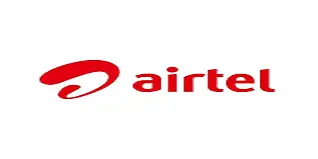
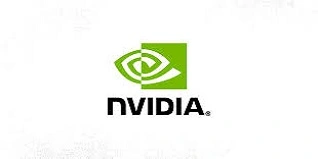
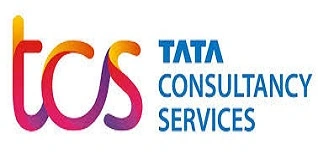

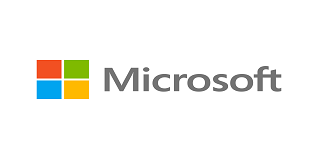
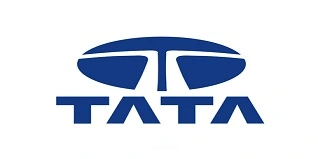

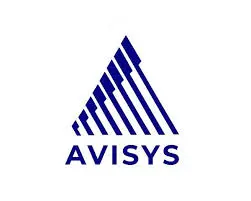
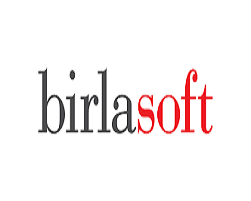
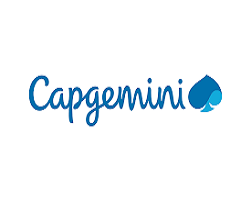

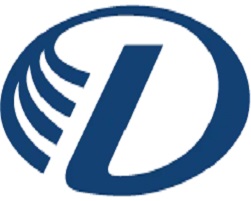

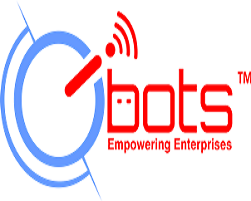
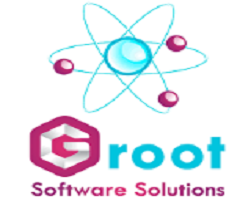
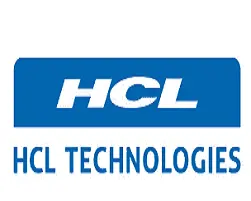
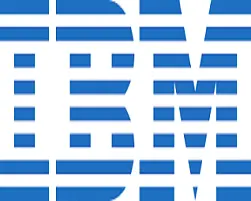
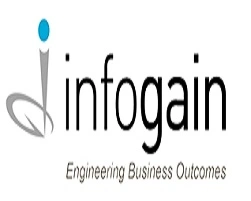
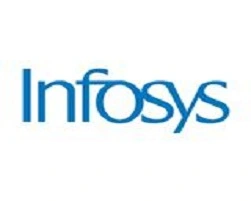
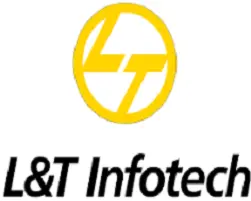
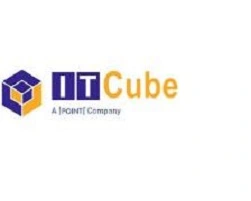
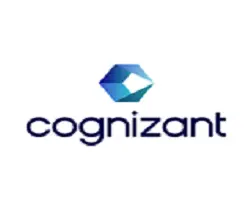
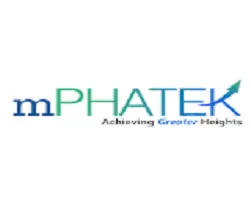
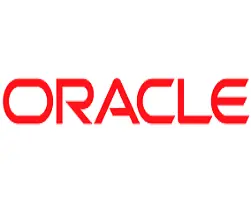
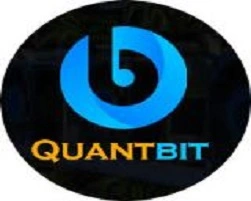
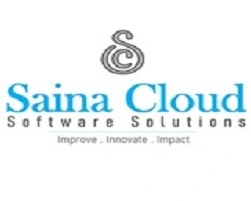




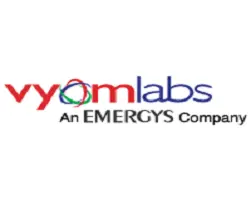
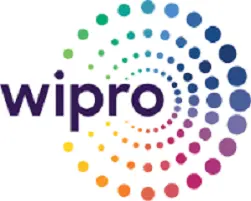
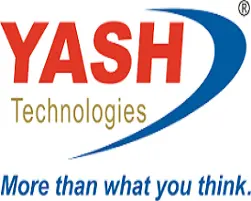
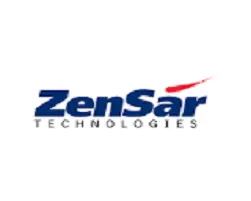
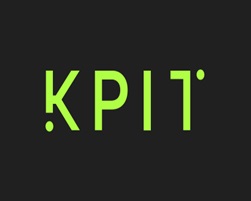
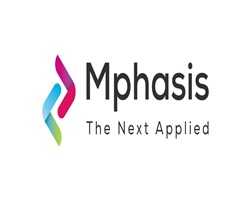
The MEARN Stack is a web development framework that consists of five key technologies: MongoDB, Express.js, Angular, React.js, and Node.js. This combination allows developers to build full-stack applications using JavaScript throughout the entire development process.
Choosing the MEARN Stack offers numerous benefits, including a unified language (JavaScript) for both frontend and backend development, rapid development capabilities, and scalability. Its components are well-integrated, making it easier to manage and deploy applications.
MongoDB serves as the database in the MEARN Stack, providing a NoSQL solution that allows for flexible data storage and retrieval. It uses a document-oriented approach, which is ideal for handling unstructured data and can efficiently manage large volumes of data.
Express.js is a backend web application framework for Node.js that simplifies the process of building APIs and handling server-side logic. It provides robust features for web and mobile applications, such as routing, middleware, and request handling.
Angular is a comprehensive framework that provides a complete solution for building single-page applications, while React is a library focused on building user interfaces. Angular uses two-way data binding, whereas React relies on a virtual DOM and unidirectional data flow.
While it is technically possible to use both Angular and React in the same application, it is generally not recommended due to potential conflicts and increased complexity. Choosing one framework based on the project’s requirements is usually more efficient.
Node.js uses an event-driven, non-blocking I/O model, which makes it ideal for handling asynchronous operations. This allows the server to manage multiple requests simultaneously without being blocked, resulting in improved performance for applications.
Middleware functions in Express.js are used to process requests and responses in the application’s request-response cycle. They can perform tasks such as logging, authentication, error handling, and modifying request or response objects.
User authentication can be implemented using JSON Web Tokens (JWT) or sessions. The server-side (Node.js and Express.js) handles login requests and issues a token or session ID, which is then validated in subsequent requests to protect secure routes.
Common challenges with MongoDB include data modeling complexities, potential for unstructured data leading to inconsistencies, and the need for careful index management to optimize query performance. It’s essential to have a well-thought-out schema design.
To optimize performance, consider techniques such as code splitting in React, using caching strategies (like Redis), optimizing database queries in MongoDB, and employing efficient routing in Express.js. Monitoring and profiling your application can also help identify bottlenecks.
Common testing tools include Jest and Mocha for unit testing, Supertest for API testing, and Cypress for end-to-end testing. Each tool offers various features to ensure comprehensive test coverage throughout the application.
Deployment can be done using cloud platforms like Heroku, AWS, or DigitalOcean. Steps typically involve building the application, setting up a server environment, configuring the database, and deploying the frontend and backend components.
Best practices for securing MEARN stack applications include validating user input, using HTTPS, implementing proper authentication and authorization, protecting against SQL injection and cross-site scripting (XSS), and keeping dependencies updated.
Yes, the MEARN Stack is suitable for small projects as well as large-scale applications. Its modular components allow for easy scaling and feature additions as the project grows, making it flexible for a wide range of applications.
Basavanagudi | HSR Layout | Sadashivanagar | Jayanagar | Koramangala | Whitefield | Banashankari | Marathahalli | BTM Layout | Electronic City | Rajajinagar | Domlur | Indiranagar | Malleshwaram | Yelahanka | Cooke Town | Nagarbhavi | Bannerghatta Road | Chandapura | Dasarahalli | Devanahalli | Anandnagar | Avenue Road | Byatarayanapura
I had an amazing experience with this service. The team was incredibly supportive and attentive to my needs. The quality of the work exceeded my expectations. I would highly recommend this to anyone looking for reliable and professional service."
I had an amazing experience with this service. The team was incredibly supportive and attentive to my needs. The quality of the work exceeded my expectations. I would highly recommend this to anyone looking for reliable and professional service."
I had an amazing experience with this service. The team was incredibly supportive and attentive to my needs. The quality of the work exceeded my expectations. I would highly recommend this to anyone looking for reliable and professional service."
I had an amazing experience with this service. The team was incredibly supportive and attentive to my needs. The quality of the work exceeded my expectations. I would highly recommend this to anyone looking for reliable and professional service."
I had an amazing experience with this service. The team was incredibly supportive and attentive to my needs. The quality of the work exceeded my expectations. I would highly recommend this to anyone looking for reliable and professional service."
The demand for skilled web developers is soaring, and learning the MEARN Stack can unlock new career opportunities. MEARN stands for MongoDB, Express.js, Angular, React.js, and Node.js—an all-encompassing JavaScript-based technology stack used for full-stack web development. By mastering MEARN, you gain the ability to build dynamic, high-performance applications with efficiency.
The MEARN stack has gained immense popularity due to its seamless integration of frontend and backend technologies, making it a powerful tool for developing modern web applications. The primary advantage of using MEARN is that it utilizes JavaScript throughout, from client-side scripting to server-side logic and database management. This consistency reduces the need for context switching and streamlines the development process.
By enrolling in a comprehensive MEARN Stack training course, you’ll gain hands-on experience with:
Our MEARN Stack course offers a step-by-step guide to mastering full-stack development. The training is divided into various modules, covering everything from the basics to advanced topics. Here’s what you can expect:
Upon completing the MEARN Stack course, you will be well-positioned for various roles in the tech industry, such as:
The MEAN stack (MongoDB, Express.js, Angular, and Node.js) is widely recognized for its efficiency in building dynamic, full-stack web applications. Below are some key applications where the MEAN stack is highly suitable:
1. Single-Page Applications (SPAs)
MEAN stack is ideal for developing single-page applications, where users can interact with the application without reloading the page. Angular enables the dynamic rendering of content, while Node.js and Express.js provide efficient server-side support. Examples of SPAs include Gmail, Google Maps, and Trello, where the interface remains responsive and interactive without constant page refreshes.
2. E-Commerce Platforms
E-commerce websites require robust, scalable platforms to manage high traffic and handle transactions securely. MEAN stack’s flexibility makes it well-suited for building such platforms. MongoDB can manage large volumes of product data and user information efficiently, while Node.js allows for quick response times, making the user experience smooth even during peak times. Examples of features include product catalogs, shopping carts, and payment gateways.
3. Content Management Systems (CMS)
CMS platforms that allow users to create, manage, and modify content dynamically benefit from the MEAN stack. With MongoDB managing content databases, and Angular providing real-time updates on the front-end, the MEAN stack enables efficient handling of content-heavy websites. It’s used in applications like blogs, news portals, and documentation websites, where constant updates are needed.
4. Real-Time Applications
Real-time applications like chat applications, live tracking systems, and collaborative tools rely on immediate data synchronization across users. The MEAN stack’s non-blocking architecture with Node.js allows for high-speed real-time communication, while MongoDB handles the storage and retrieval of messages or live data efficiently. Platforms like Slack and WhatsApp use similar architecture to deliver real-time messaging services.
5. Social Media Platforms
Social networking sites require dynamic user interfaces and efficient data handling, making the MEAN stack a good choice. With Angular, developers can create interactive and responsive UIs, while Node.js supports real-time updates and scaling for large user bases. MongoDB‘s ability to handle large datasets ensures that social media platforms can manage profiles, messages, posts, and interactions smoothly. The MEAN stack is commonly used for creating features like timelines, notifications, and chat functions.
6. Enterprise Applications
MEAN stack is also well-suited for enterprise-level applications, where high performance and scalability are crucial. Large organizations often need custom internal tools or platforms for project management, HR systems, CRM tools, and financial dashboards. The MEAN stack offers a flexible and efficient environment for building these internal applications, helping businesses streamline their operations. MongoDB’s document-based model allows for easy handling of complex data structures often required by enterprises.
7. Cloud-Based Applications
The MEAN stack is often used for building cloud-based applications due to its scalability and ability to handle large volumes of data efficiently. Applications that store and process data in the cloud, such as file storage systems, data analytics platforms, or SaaS applications, benefit from MongoDB’s capacity to manage large databases, while Node.js provides the framework to handle high traffic and multiple requests simultaneously.
8. Streaming Applications
Streaming platforms, such as music, video, or live sports streaming, require seamless handling of large data transfers in real-time. MEAN stack’s non-blocking nature, with Node.js at its core, supports efficient streaming by enabling multiple connections simultaneously without sacrificing performance. This makes MEAN ideal for building platforms like Netflix or Spotify, which need to deliver large volumes of media to users instantly.
9. Location-Based Services
Location-based services, like ride-sharing apps (e.g., Uber or Lyft), require real-time updates and geolocation data. MEAN stack enables developers to build these systems by integrating features like real-time tracking and route management. MongoDB’s flexibility allows for easy storage and management of geolocation data, while Node.js processes real-time requests efficiently.
10. Data-Intensive Dashboards
For applications that require
data visualization and analysis, MEAN stack is a great choice. Dashboards for monitoring performance, analytics, and metrics often need to display real-time data changes. MEAN’s combination of Node.js and MongoDB allows for the swift retrieval and updating of data, while Angular is perfect for creating interactive, user-friendly visualizations. These dashboards can be used in industries such as finance, healthcare, and IT, where large datasets need to be interpreted quickly and accurately.
The MEARN Stack (MongoDB, Express.js, Angular, React.js, and Node.js) is one of the most versatile and powerful tools for building dynamic web applications. Its ability to handle both frontend and backend development using JavaScript makes it an ideal choice for creating high-performance, scalable, and interactive applications. Below, we explore the key applications of the MEARN Stack and why it has become the go-to solution for developers worldwide.
1. Single Page Applications (SPAs)
Single Page Applications are websites or web apps that load all necessary resources in a single page load and dynamically update content as users interact with the app. MEARN Stack is widely used for SPAs because of its speed, responsiveness, and smooth user experience. Technologies like React.js (or Angular) help manage front-end views, ensuring seamless transitions without reloading the entire page. Node.js and Express handle the backend logic, while MongoDB stores dynamic content.
Examples of SPAs:
Social media platforms like Facebook
E-commerce sites
Online banking portals
Email services
2. E-Commerce Platforms
E-commerce websites require real-time data management, fast loading times, and scalability to handle high traffic volumes. MEARN Stack’s asynchronous architecture with Node.js ensures quick data retrieval and interaction between users and the server, making it ideal for developing e-commerce solutions. MongoDB offers flexible database management, allowing for quick scaling and storage of various product information, user data, and transactional records.
Key Features in E-Commerce Apps Built Using MEARN:
Dynamic product listings and updates
User authentication and secure payment gateways
Shopping carts and order management
Real-time inventory tracking
3. Content Management Systems (CMS)
Content Management Systems are essential for businesses looking to maintain dynamic websites with frequently updated content. MEARN Stack is a strong contender for developing CMS platforms due to its ability to handle large-scale databases (MongoDB), along with a smooth content management interface powered by Angular or React. Express.js and Node.js can handle the server-side logic, making it easy for admins to publish, modify, and organize content seamlessly.
Advantages of MEARN for CMS Development:
Fast content rendering and updates
Support for rich media like images, videos, and documents
User roles and permissions for managing multiple contributors
SEO-friendly routing and dynamic content rendering
4. Real-Time Chat Applications
Real-time chat applications demand quick updates and bi-directional communication between users. MEARN Stack provides the perfect framework for building such applications, where the use of WebSockets in Node.js allows real-time interaction between the server and clients. MongoDB efficiently stores user messages, chats, and other data, while React.js ensures that the user interface remains highly responsive and interactive.
Examples of Real-Time Apps:
Live customer support chat
Social messaging platforms
Team collaboration tools like Slack
Gaming chat applications
5. Social Media Platforms
The MEARN Stack is an excellent choice for building social media platforms due to its ability to handle complex, dynamic content and user interactions in real-time. MongoDB’s NoSQL database structure is flexible, which is essential for storing a wide range of user-generated content, including posts, comments, likes, and multimedia. React.js or Angular enhances the front-end experience, ensuring fast content updates, while Node.js and Express provide a robust backend for handling millions of users simultaneously.
Features in Social Media Apps Built with MEARN:
User authentication and profile management
Real-time notifications and updates
Chat and messaging features
Multimedia uploads (images, videos)
6. Project Management Tools
Project management tools like Trello, Jira, and Asana help teams collaborate on tasks and manage projects effectively. MEARN Stack can be used to build such tools due to its flexibility and scalability. The front-end frameworks like React.js provide a smooth user experience, while MongoDB handles the storage of large datasets such as tasks, timelines, and project milestones. Node.js and Express power the backend, managing the task assignments, progress tracking, and notifications.
Key Features of Project Management Apps:
Task assignment and tracking
Kanban boards and timelines
Team collaboration features (comments, file sharing)
Real-time notifications and updates
7. Interactive Dashboards and Data Analytics
Businesses rely on data to make informed decisions, and MEARN Stack is perfectly suited for building interactive dashboards and data analytics platforms. Using MongoDB, developers can manage large datasets, while React.js ensures that the data is displayed in an interactive, user-friendly way. Express.js and Node.js handle the backend processing, including fetching data from various sources and performing complex calculations.
Applications of Data Analytics Platforms:
Real-time business performance tracking
Financial data visualization
Customer behavior analytics
Sales and marketing insights
8. Online Learning Platforms
E-learning platforms require scalability, user interaction, content management, and secure authentication processes, all of which can be built using MEARN Stack. React.js and Angular provide interactive and dynamic front-end experiences, while MongoDB handles large-scale content storage like course materials, quizzes, and user progress. Node.js and Express allow real-time updates, video streaming, and chat functionality, enhancing the learning experience.
Features of E-Learning Platforms Built with MEARN:
Online courses and modules
Real-time student-teacher interaction
Progress tracking and assessments
Gamification features like badges and leaderboards
9. Healthcare Applications
Healthcare apps require secure handling of sensitive user data, fast access to information, and real-time updates for patient care. MEARN Stack can be used to develop telemedicine platforms, appointment booking systems, and patient portals. With MongoDB’s flexible schema, data storage is easily scalable, while Node.js ensures fast data processing and handling. React.js and Angular make it possible to deliver a responsive interface for both patients and healthcare providers.
Examples of Healthcare Apps:
Appointment scheduling systems
Telemedicine platforms
Patient health record systems
Medical practice management software


(Our Team will call you to discuss the Fees)


(Our Team will call you to discuss the Fees)